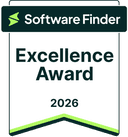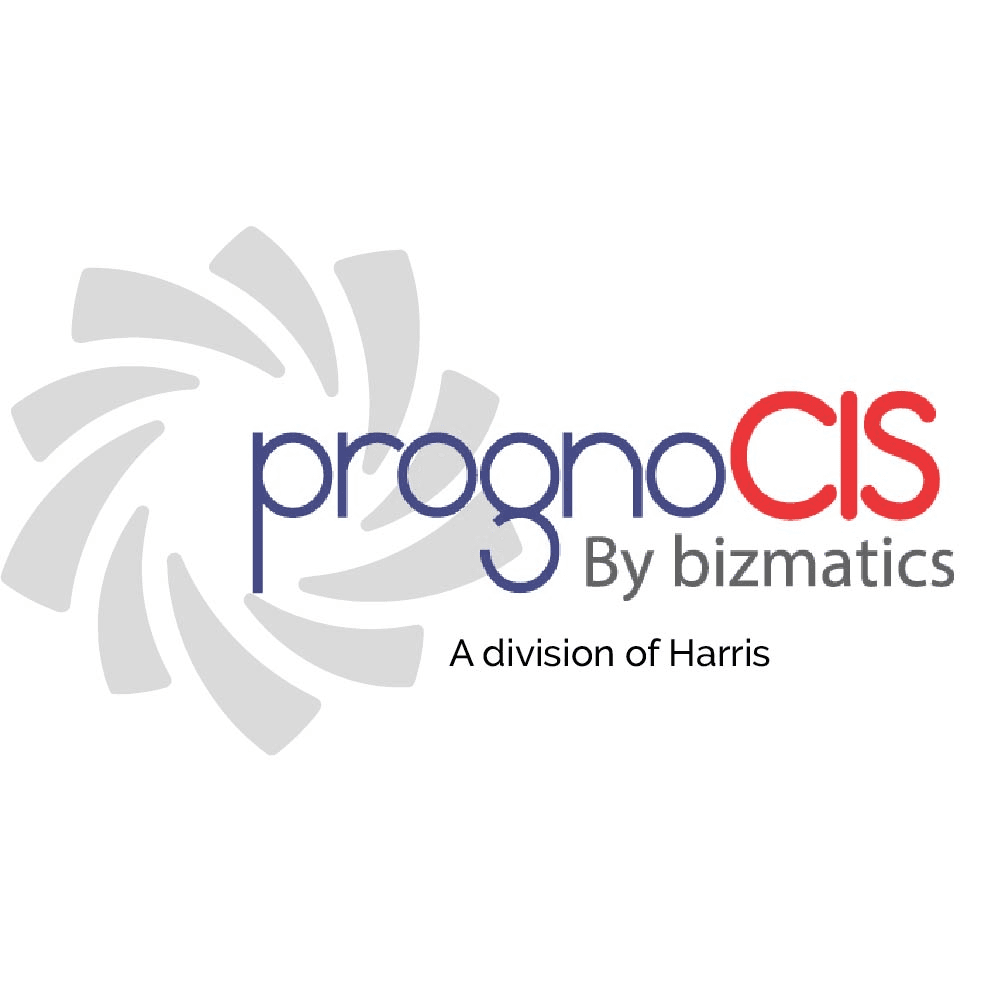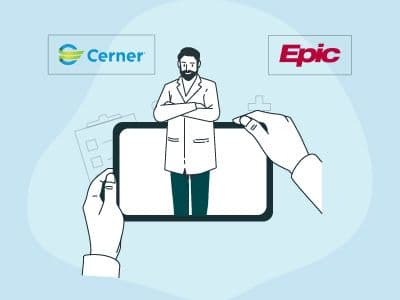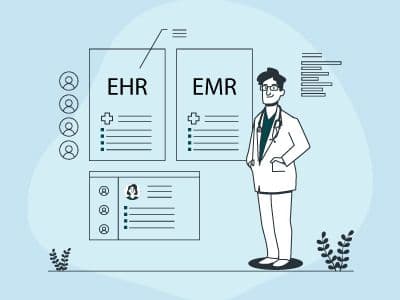Select up to 2 products
Compare Features
Feature List |  Medgen EHR | AdvancedMD | 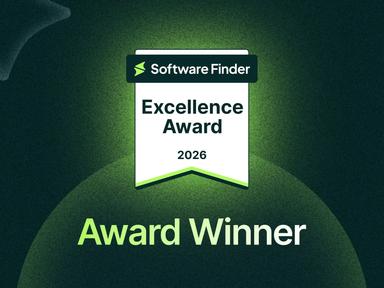 athenaOne | Cerner EMR | DrChrono EHR |
|---|---|---|---|---|---|
Appointment Management/Scheduling | |||||
e-Prescriptions | |||||
Lab Integration | |||||
Patient Portal | |||||
Mobile App | |||||
Telemedicine | |||||
Billing and Invoicing | |||||
Claims Management | |||||
Customizable Forms | |||||
Patient Demographics |
Make decisions with real reviews from real users
Top 10 Medgen EHR Alternatives
Finding the ideal Medgen EHR alternative can be a daunting task with various companies operating in the electronic health record (EHR) software industry. It is vital for medical care providers to enhance their operational efficiency, optimize patient treatments, and streamline internal workflows.
Medgen EHR excels in providing practitioners with solutions for patient scheduling, billing, document management, and more. However, regardless of the wide functionality, some healthcare centers may seek alternatives to address their complex needs, such as integration limitations, lack of extensive customization, or other feature gaps in Medgen EHR.
To save time in your alternative research journey, we have crafted a list of the best Medgen alternatives by an in-depth analysis of the medical software market.
Let’s dive in for further exploration!
Our 10 Best Medgen EHR Alternatives
Software | Unique Advantage | Notable Features |
NextGen Office EHR | Comprehensive EHR integration |
|
eClinicalWorks | Advanced interoperability tools |
|
Epic EMR | Scalability for large healthcare systems |
|
DrChrono EHR | Best for mobile usage |
|
athenaOne EHR Mobile App | AI-driven EHR management |
|
Cerner EMR | Data analytics and reporting capabilities |
|
PrognoCIS | Cloud-based with customizable modules |
|
WebPT | Ideal for physical therapy practices |
|
ModMed EMR | Specialty-focused EHR features |
|
Carepatron | Collaboration-focused workflow management |
|
1. NextGen Office EHR
NextGen Office EHR is a robust cloud-enabled solution that offers personalized services to govern complex processes of healthcare providers. It primarily targets small to mid-sized practices with pediatrics, family medicine, and primary health specialties. Its feature set includes customizable templates, telehealth tools, and more. Compared to Medgen EHR, it offers versatile telehealth capabilities and customization options, making it a strong alternative to Medgen EHR.
Some of its key features include:
- Customized charting
- E-prescription tools
- Telehealth platform
- Revenue cycle management
What Are The Pros And Cons Of NextGen Office EHR?
Pros | Cons |
|
|
How Much Does NextGen Office EHR Cost?
The vendor offers personalized quotes based on the size and requirements of a medical practice.
2. eClinicalWorks
eClinicalWorks is a popular EHR tool that provides functionalities to enhance practice workflows and patient experience. It caters to the critical needs of multi-specialty healthcare organizations, including clinics, hospitals, and primary care units. Its advanced mechanisms foster synergy among different departments within healthcare providers. Particularly, its ability to integrate with other medical software and population management tools makes it a top choice over alternatives like Medgen EHR.
The essential features of eClinicalWorks are:
- Patient engagement portal
- Health analytics
- Integrations with external systems
- Revenue Management
What Are The Pros And Cons of eClinicaWorks?
Pros | Cons |
|
|
How Much Does eClinicalWorks Cost?
It offers three functionality-based pricing plans:
- EHR Only: $449/month/provider
- EHR with Practice Management: $599/month/provider
- RCM as a Service: 2.9% of practice collections
3. Epic EMR
Epic electronic medical record (EMR) is a renowned healthcare software that enables practices to streamline care coordination, analytics and reporting, patient communication, and more. It is a highly scalable solution and continues to provide support to healthcare providers of all sizes. Due to its reputation for supporting large medical care units, compared to Medgen EHR’s focus on smaller practices, it is considered one of the most recommended alternatives to Medgen EHR.
The core features of Epic EMR are:
- Extensive care coordination platform
- Advanced data analytics
- Mobile accessibility
- Strong patient portal
What Are The Pros And Cons Of Epic EMR?
Pros | Cons |
|
|
How Much Does Epic EMR Cost?
The vendor offers custom pricing based on the size and requirements of the practice.
4. DrChrono EHR
DrChrono is an EHR solution that utilizes cloud-hosted technology to meet the complex operational needs of medical caregivers. It focuses on smoothening activities of small to medium-sized practices. Moreover, it is known for its user-friendly interface, customizable forms, ability to connect with external telehealth tools, and more. While Medgen EHR provides basic accessibility, DrChrono EHR excels in offering on-the-go access through a mobile app that can also be installed on iOS devices, hence making it a viable Medgen EHR alternative.
Here are the key features of DrChrono EHR:
- Charts and form management
- Telehealth connectivity
- HIPPA compliance
- Automated bill generation
What Are The Pros And Cons Of DrChrono EHR?
Pros | Cons |
|
|
How Much Does DrChrono EHR Cost?
The vendor offers the following four customizable pricing plans:
- Prometheus – Custom pricing
- Hippocrates – Custom pricing
- Apollo – Custom pricing
- Apollo Plus – Custom pricing
5. athenaOne EHR Mobile App
athenaOne EHR Mobile App is a powerful platform that simplifies practice management with its mobile-focused approach and AI-driven analytics. It’s mainly tailored for multi-specialty providers who require a solution with advanced reporting, comprehensive analytics, and efficient claims management to handle their complex workflows effectively. As Medgen EHR lacks an effective mobile application and focuses on generic EHR features, the athenaOne EHR Mobile App is considered as one of the best alternatives due to it being a mobile-first platform with AI connectivity and a modern user-interface.
Following are the key features of athenaOne EHR:
- AI integration
- Claims processing
- Patient communication
- Mobile management app
What Are The Pros And Cons Of athenaOne EHR?
Pros | Cons |
|
|
How Much Does athenaOne EHR Mobile App Cost?
The vendor provides personalized pricing plans.
6. Cerner EMR
Cerner EMR is a practice management solution that is designed to perform multiple tasks in one single software. It is widely recognized for integrating multiple EMR capabilities, such as workflow management, patient care coordination, and analytical insights. It is most suitable for medium to large-scale healthcare units, including public hospitals, multi-specialty clinics, and primary care centers.
It makes an important place in the Medgen EHR alternative list due to its efficient and seamless data exchange mechanism, complemented by an extensive suite of general EMR features—unlike Medgen EHR’s basic management offerings.
Some of its notable features are:
- Data management
- Patient engagement
- Laboratory and imaging system integrations
- Data-driven analytical insights
What Are The Pros And Cons Of Cerner EMR?
Pros | Cons |
|
|
How Much Does Cerner EMR Cost?
The vendor offers personalized pricing plans depending on the practice requirements and size.
7. PrognoCIS
PrognoCIS is a cloud-enabled EHR platform famous for its customizations and telemedicine functionalities. It is renowned as ideal for smaller specialty clinics or individual practitioners providing specialties such as dermatology, gynecology, cardiology, and others. It earns a place on our Medgen EHR alternatives list by offering advanced customization to simplify billing, boosting practice productivity, and enabling practices with complex needs to have flexible workflows.
The key features include:
- Cloud-based deployment
- Virtual care management
- Secure messaging
- Specialty-based flexible templates
What Are The Pros And Cons Of PrognoCIS?
Pros | Cons |
|
|
How Much Does PrognoCIS Cost?
The vendor provides flexible pricing as per specialty requirements.
8. WebPT
WebPT is an EHR platform built specifically to provide documentation, scheduling, billing, and other services to practitioners. These features are personalized to meet the unique requirements of physical therapy centers, rehabilitation providers, and sports medicine practices. Compared to Medgen EHR, which focuses on basic EHR services, this tool offers unique features that support overwhelmed individuals seeking professional help, making it one of the most valuable Medgen EHR alternatives.
Some of the notable features are:
- Therapy-centric form templates
- Appointment management
- Invoice and bill generation
- Compliance adherence
What Are The Pros And Cons Of WebPT?
Pros | Cons |
|
|
How Much Does WebPT Cost?
It provides three pricing plans based on the modules opted for:
- Starter
- Enhanced
- Ultimate
9. ModMed EMR
ModeMed EMR is a popular practice management tool that utilizes AI offering smart features to boost the efficiency of specific specialty providers. It is highly suitable for specialties such as orthopedics, ophthalmology, and dermatology. While Medgen EHR provides functionalities to cater to all specialty workflows, ModMed EMR is more niche focused, which is why we have placed it as an alternative for practitioners looking for specific specialty software.
The key features of ModMed EMR are:
- Telehealth Integrations
- Performance tracking
- Customized templates
- AI-enhancements
What Are The Pros And Cons Of ModMed EMR
Pros | Cons |
|
|
How Much Does ModMed EMR Cost?
The vendor provides specialty-based pricing.
10. Carepatron
Carepatron is a healthcare management system designed to help medical providers create customized workflows that suit their practice's unique needs. Also, it offers features for notetaking, patient engagement, and more. It’s primarily geared toward smaller practices specializing in therapies, counseling, and similar services. While Medgen EMR focuses more on clinical workflows, Carepatron accelerates collaborative efforts and managing patients, making it a solid Medgen EMR alternative.
Following are its main features:
- Task management
- HIPPA-compliance
- Reminder automation
- Note-taking abilities
What Are The Pros And Cons Of Carepatron?
Pros | Cons |
|
|
How Much Does Carepatron Cost?
It offers the following plans:
- Free: $0
- Essential: $19/month
- Plus: $24/month
- Advanced: $29/month
Disclaimer: The pricing is subject to change.
How We Chose The Best Medgen EHR Alternatives
Our selection was guided by in-depth research and real-world user insights. Here are the top factors we considered:
- Industry Fit: We focused on versatile EHR systems that cater to various practice sizes and specialties
- Key Features: Prioritized essential tools like telehealth, customizable templates, and patient engagement features
- User Feedback: Analyzed reviews to understand actual user experiences
- Scalability And Integration: Highlighted software that grows with your practice and integrates with tools like billing systems and analytics platforms
These factors guided us in selecting the top EHR alternatives, ensuring they meet the unique needs of healthcare providers looking for a more suitable solution.
Finding The Right Medgen EHR Alternative
Selecting the perfect EHR system starts with understanding your practice’s unique needs. Identify what’s missing in your current system—whether it’s seamless integrations, advanced analytics, or features tailored to your specialty. Ensure the software can grow with your practice and adapt to your future needs.
Look for tools that integrate effortlessly with the systems you already use, like billing or patient engagement platforms. Security and compliance are non-negotiable, so prioritize solutions with HIPAA compliance and strong data protection.
Ready to make the switch? Contact us today to discover top-rated Medgen EHR alternative platforms and find the perfect fit for your practice!

